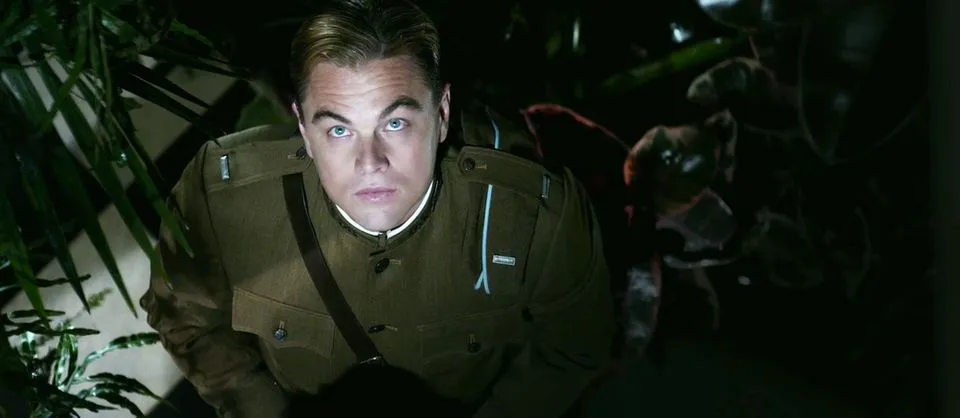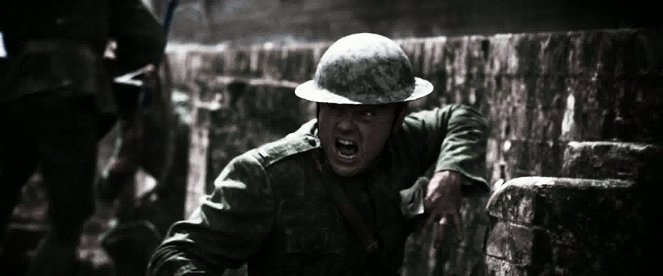PRELIM 7B: Research Topic Formal Proposal

What if Jay Gatsby wasn’t simply a mysterious millionaire hopelessly in love? What if he is also a haunted war veteran attempting to reclaim a life destroyed by trauma and bloody politics?
Since the publishing of The Great Gatsby by the American classicist F. Scott Fitzgerald, readers across the 20th and 21st centuries have marveled at the allure of Jay Gatsby—the book whom The Great Gatsby is named after. Gatsby is a man who created his fortune and wealth to chase his dream: the hand of Daisy Buchanan. While there is no doubt that this is a tale of a hopeless romantic who wants to win back the love of life, what if his obsessive pursuit cannot simply be attributed to only romantic idealism? What if his choices are a manifestation of post-traumatic stress disorder born from the horrors he endured from World War I?
This proposed film adaptation of Fitzgerald’s The Great Gatsby aims to reframe the events of Gatsby’s character arc through the lens of war and its lasting psychological scars. Drawing on historical research on WWI and modern-day understanding of PTSD in the context of war, The Ghost of War presents Gatsby not merely as a dreamer, but as a survivor of one of the most catastrophic clashing of thought and flesh. Gatsby is haunted, disillusioned, and desperately clinging to the fragments of a life he had to sacrifice when he entered the battlefield.
Reimagining the Classic

This film adaptation will incorporate multitudinous flashbacks from Gatsby’s time serving in WWI on the European battlefront. Showcasing Gatsby’s service in the form of flashbacks serve as a visceral form of context that is paramount to exhibiting his inner emotional struggles responsible for the central conflict of The Great Gatsby. His postwar pursuit is not simply a matter of the heart; it is a matter of a man attempting to resurrect his sense of purpose and wholeness before being transported to a mortal hellscape.
Through visual contrast, the film will naturally juxtapose the grim brutality of the trench warfare with the dazzling glamour of the Jazz Age. In doing so, it highlights a critical harsh truth. Not everyone drowned their bodies with endless glasses of champagne while surrounded by a community. Others bore and tended to invisible wounds in secluded, private moments. Not only does this showcase a strong visual contrast, it also exhibits the divide between class and privilege which is one of The Great Gatsby’s most iconic themes presented through the self-made wealth of Gatsby and the inherited-wealth of Tom Buchanan.
Why This Story Matters Now
This reimagining and retelling of one of America’s most iconic classics is not simply for lovers of The Great Gatsby, it’s for anyone who values historical drama, war narratives, and the human stories that lie beneath them. It’s for audiences who understand that trauma does not always assume its stereotypical appearance. It can take the form of ambition, obsession, or even love.
Perhaps most importantly, The Ghost of War attempts to speak and advocate for mental health and recognize the struggle many U.S. veterans endure when reintegrating back into a society physically untouched by war after returning from a place without peace. Gatsby becomes a solidified symbol of the lost generation and, by extension, of today’s war-torn souls who return home to a house with a room that doesn’t fit them anymore.
A Tribute to the Forgotten
By exploring the psychological cost of war and the fragile nature of the American Dream, The Ghost of War invites us to look beyond the glittering surface of Jay Gatsby. Underneath his iconic charismatic facade remains a man who is a soldier, a survivor, and haunted by an intangible ghost.

Leave a Reply
You must be logged in to post a comment.